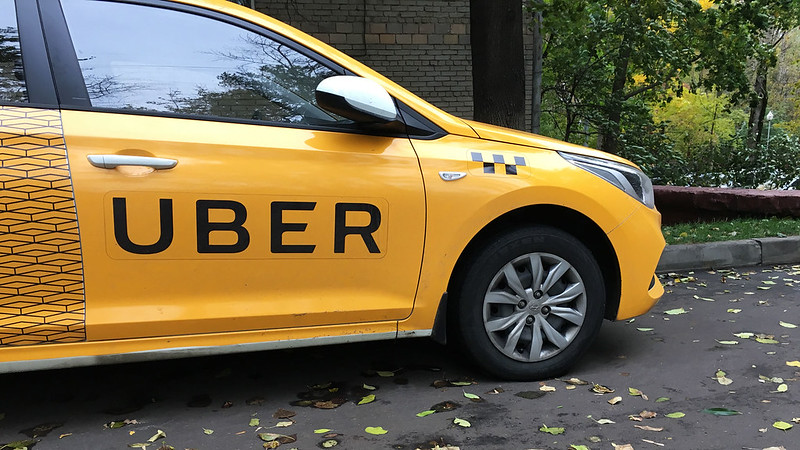
Photo: https://www.flickr.com/photos/140582948@N03/
Uber faces legal action over facial recognition ID checks in UK
08 October 2021
by Christopher Carey
Uber is facing a legal challenge over its use of facial recognition technology in driver and courier identity checks in the UK, with unions representing drivers saying the firm’s biometric identity checks discriminate against people of colour.
The App Drivers & Couriers Union (ADCU) has launched an employment tribunal case citing “harassment related to race, victimisation and indirect race discrimination”. This follows the dismissal of an Uber driver and an Uber Eats courier due to what Uber says were failed checks by its facial recognition technology.
“Last year Uber made a big claim that it was an anti-racist company and challenged all who tolerate racism to delete the app,” said Yaseen Aslam, President of ADCU.
“But rather than root out racism, Uber has bedded it into its systems and workers face discrimination daily as a result.”
Uber has strongly denied the claims, saying drivers can opt for human verification of their picture, and when technology is chosen there is a minimum of two human expert reviews prior to any decision to remove a driver.
It also said anyone removed from the platform could appeal against the decision, with an additional human review.
In September 2020, the Westminster Magistrates Court renewed Uber’s licence for London but set a condition that it must maintain appropriate systems, processes and procedures to confirm that a driver using the app is an individual licensed by TfL and permitted by Uber to use the app.
This followed a software glitch that allowed more than 14,000 trips to be carried out by drivers who faked their identity on the app, meaning those journeys were uninsured and, in some cases, trips were taken with unlicensed drivers.
Controversy
Uber has used the facial recognition software in the UK since April 2020, incorporating Microsoft’s Face API.
Drivers can be prompted to provide a real-time selfie to verify their identity, which is checked against a picture already in Uber’s database.
The ADCU says drivers face dismissal if the system fails to match the selfie with the stored reference photo, and in turn, private hire drivers who have been dismissed also faced automatic revocation of their private hire driver and vehicle licences by Transport for London.
It also pointed out the actions of facial recognition technology providers. In June 2020, Microsoft withdrew sales of its facial recognition software to US police departments until a national regulation governing such systems is in place. The company joined several others implementing discontinuations or bans, including Amazon, IBM and Axon.
Speaking to Cities Today, James Farrar, General Secretary of the ADCU said: “All of the drivers that we’ve represented that have [been] to the magistrate’s court when they’ve had their licences revoked – we’ve appealed every one of them, and won every one of them.”
The union has launched a Crowdjustice campaign to help fund the case, and is being represented by law firm Bates Wells.
A 2019 study by the US National Institute of Standards and Technology (NIST) found that face recognition algorithms misidentified people of colour up to 100 times more frequently than white people.
Several US cities have now moved to ban the software after a number of incidents involving use of the technology.
Cities Today has contacted Uber for a comment.
Image: Tati Tata (Flickr)













